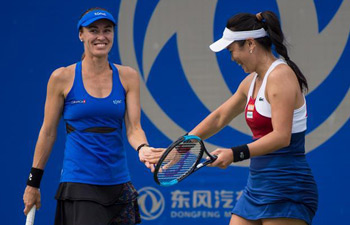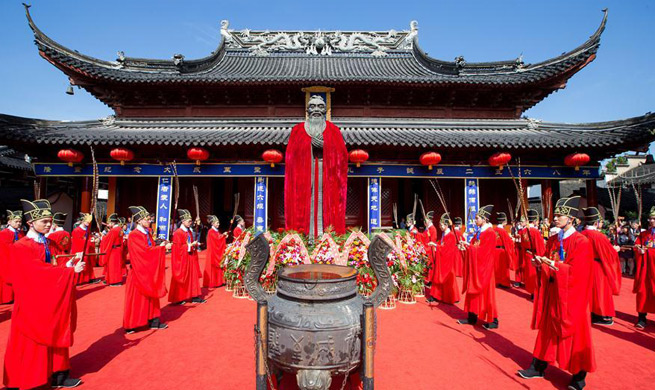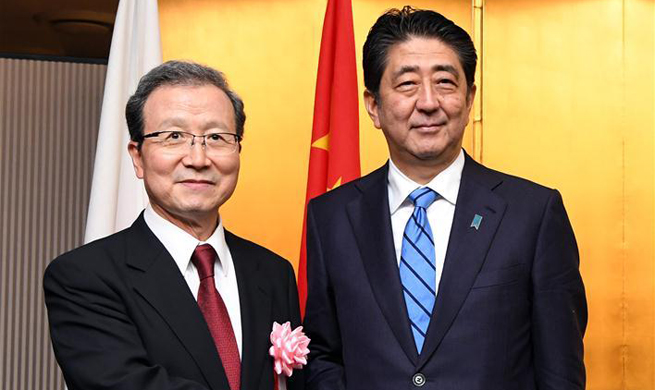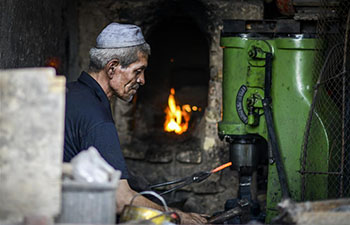YINCHUAN, Sept. 29 (Xinhua) -- Although China is getting richer, its young people are not necessarily getting healthier.
Statistics from a school in northeastern China showed that the records for school sports competitions have not been broken for decades, sparking public concern about the weak physical health of the younger generation.
According to school authorities, who declined to name the school, the record for the women's 800-meter run was set in 1977, while the record for the women's 100-meter dash dates back to 1979. The record in the men's 110-meter hurdle competition has not been broken since 1981.
"These days, the level of participants in city sports competitions is like that of school competitions," said the school staff member in charge of the sports department.
According to a survey on teen health from the education department of Guangzhou, in 2016, only 2.6 percent of those surveyed in the southern city had "excellent" health indexes compared to the national standard, while 16.2 percent of respondents failed to reach the standard.
Mao Zhenming, a sports official from the China Education Association, said that in the past 30 years, the national standards were lowered for students' health, including their running, jumping and throwing abilities, as many students could not meet the previous high standard.
"It has become increasingly difficult to recruit qualified students for school sports teams in recent years," said a physical education teacher in northwestern China's Shaanxi Province. "They appear to have grown taller and stronger, but their physical abilities, such as endurance, have dwindled."
Some blame parents for spoiling their children.
Ding Xiaojing, an official with the sports association in Yinchuan City, capital of northwest China's Ningxia Hui Autonomous Region, said that some parents fear their children will get hurt if they take part in physical activities.
"When we were kids, we used to play basketball and football a lot, which strengthened our bodies," Ding recalled. "But now parents are becoming a little overprotective, and they need to change their thinking."
The lack of sports training agencies is another stumbling block.
According to the General Administration of Sport, China has about 7,000 various organizations dedicated to teenagers' physical training. In the United States, there are about 5,000 training clubs for gymnastics alone.
"In China, many sports clubs are private, but the clubs' sports venues are controlled by public schools," said Liu Hechang, a teacher in the sports department of North Minzu University.
Meanwhile, Chinese teenagers are simply getting too fat.
Bian Ke, who has run a busy restaurant for 30 years in Chengdu, capital of southwest China's Sichuan Province, says parents often take their children to his restaurant.
"Expensive food, such as goose liver, is a symbol of high living and opulence," said the restauranteur. "However, parents are not paying attention to the amount of protein they and their children take in."
Traditional ingredients, such as chicken or duck, have now been replaced by lobster and imported steak. This has caused many to become pot-bellied, he said.
China's breakneck economic growth has allowed people to enjoy fuller diets, but richer ingredients have led to an increase in obese people. In Sichuan, the most populous province in southwest China, almost one third of the population is overweight.
A 2013 survey found there were 62 million overweight Chinese, second only to the United States.
"Nowadays, people are too busy to cook at home, which means they are not in control of the amount of oil and salt that goes into their food," Bian said.
Experts say that children should be encouraged to take part in sports activities instead of spending all their time doing homework.
"Teenagers are going through a critical phase of their lives, and it is important to teach them about the importance of participating in outdoor activities and improving health," said Liu Hechang.
He suggested that more attention should be given to sports classes, and physical health should be included in the evaluation system for students.
Huang Qian, a professor at Xi'an Physical Education University, said that more sports venues should be open to the public.
"Sports should be promoted in communities, so that the idea of doing sports can truly take root in Chinese families," Huang said.

















